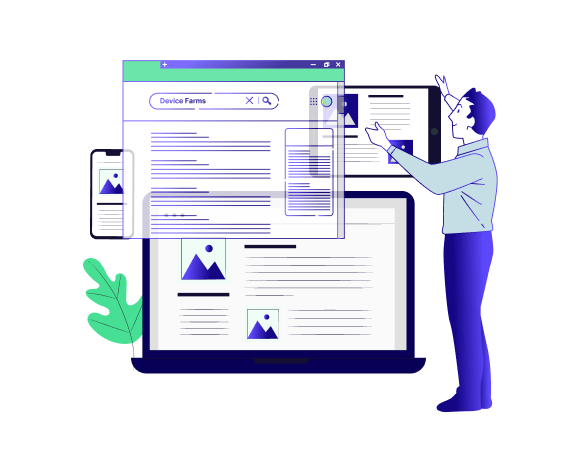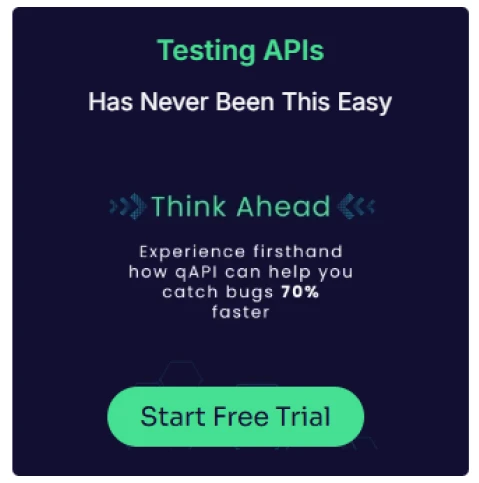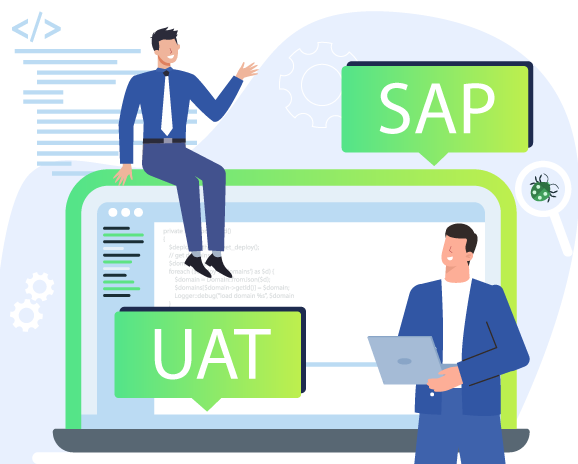Unparalleled Quality Assurance through AI in Test Automation


Quality assurance (QA) has come a long way since the manual testing days of the 80s. Today, the use of AI in test automation accelerates QA at a never-before-seen scale. For instance, 30% of developers now leverage AI and machine learning for testing requirements.
Industry research indicates that AI-augmented software testing will be in active use by 70% of enterprises by 2025. This study estimates that businesses that fail to capitalize on AI in test automation by that time might spend twice as much on testing and defect remediation.
Rise of AI in Test Automation
Software quality standards are a major driver behind the increase in the adoption of AI test automation tools. An ever-shrinking go-to-market window creates quality issues that hamper digital transformation. Integration of AI in automation testing solutions mitigates such business risks. The use of AI in automation testing spans across Web, mobile, and API test environments. When combined with infrastructure options like device farms, these solutions ensure ideal test outcomes.

Evolution of Software Testing (Source: Gartner)
Modern AI-based software testing tools like Qyrus offer the following capabilities:
- End-to-end test management (Web, mobile, and API)
- Performance testing
- Component testing
- Infrastructure solutions like browser farms and device farms
- GUI functional tests
- Visual testing
- AI-powered test script correction
- Integration with continuous integration tools
- Generation of test data
Advantages of AI in test automation
Acceleration of test processes without compromises or manual intervention is the best advantage of using AI-augmented automation. Cost savings are a natural outcome of AI-enabled test automation tools.
API testing is a notable use case, where Qyrus’ AI-based platform boosts test efficiency by 40% in comparison to older code-based tools. This results from our proven QA philosophy of Discover > Understand > Predict > Respond.
Leveraging AI for software testing is a quantum leap compared to older options like browser automation frameworks or continuous testing. These test automation tools can also be leveraged for end-to-end assessment of AI-infused applications.
Considering the complexity of AI-infused applications, AI software testing tools fully automate test building and data generation. These can be executed at scale to account for all use cases.
A look at two AI test automation features from QyrusAI Verse will help us understand the advantages of AI in automation testing.
Rover – Rover is an exceptional, cutting-edge autonomous exploratory testing solution that leverages deep reinforcement learning to generate tests with remarkable intelligence, eliminating the need for human involvement. Representing a groundbreaking advancement in the field of testing, Rover operates as a comprehensive and fully automated black-box testing solution that solely necessitates your application. It effortlessly generates test inputs in real time and executes them seamlessly, without any reliance on an expert tester to determine the scope of testing, the timing, or the necessary inputs.
Healer – Qyrus’ antidote for test flakiness, brittleness, and fragmentation, Healer is a lifesaver for testers. It reduces efforts in areas like script maintenance with its self-healing capabilities. Healer utilizes AI to detect test step changes and perform automatic script corrections. It reduces script rebuilding efforts in case of UI changes or redevelopment initiatives. This eliminates situations like manual object identification and determination of locator values in case of “object not found” errors.
QA potential of Rover and Healer
AI-enabled tools like Rover and Healer are ideal for performing comprehensive functional tests without human intervention. The power of AI software brings in the following set of advantages:
Faster, stable UI tests: The significant efforts that go into UI tests affect overall development turnarounds. AI software testing features like Rover use dynamic locators to avoid such delays. It relies on the analysis of how users interact with each element’s attributes to create a real-time list of location tactics. This translates to no more testing failures due to changes in element attributes.
Access user behavior insights: In addition to mapping user journeys across a mobile application, Rover is an ideal solution to visualize navigational flows for the creation of newer tests. Such use cases of AI in test automation are also ideal to capture mobile device performance metrics.
Prevent flaky tests: Many man-hours are spent on failed functionality tests and related troubleshooting – even in software testing automation environments. Self-healing features like Healer use the predictive capabilities of AI in test automation to avoid such issues. Easy availability of deployable locator types and values in case of failure ensures a quick return to base functionality.
Learn from production data: The use of AI in automation testing is ideal to kick off knowledge management initiatives that utilize production data. Qyrus’ rich AI feature set observes and learns from app usage patterns. QA teams can harness this rich knowledge base to design new tests that improve product efficiency.
Improve defect tracking: Errors in test outcomes are common in unobserved test environments. Prevent such instances with the use of AI in test automation. In this case, Healer monitors scripts for errors and initiates timely changes that augment defect-tracking capabilities.
Leverage visual testing: Manual methods of visual Web page validation introduce a high probability of errors. Reliance on AI in automation testing is valuable for such design assessments. The healer is ideal for proactively monitoring application bugs and errors for visual validation. It prevents error-free UI access for users.
Enhance API quality: API tests call for a high degree of expertise and usage of multiple tools. AI test automation tools streamline the massive data analysis requirements associated with API testing. A case in point is the Qyrus platform, which uses a codeless taxonomy-driven interface to make the tester’s life easier and more efficient. The GUI also allows the reuse of functional API tests for the creation of business processes.
Unlock the AI-rich future
Dynamically changing application requirements can be major setbacks for conventional test automation environments. The adoption of AI in test automation use cases mitigates such challenges.
Ensure simpler, smarter, and scalable AI software testing capabilities with Qyrus’ comprehensive software test automation platform. Contact us today to discover the rich benefits that AI can bring to your software testing environment.






